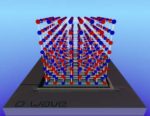Communications of the ACM

The blog archive provides access to past blog postings from Communications of the ACM and other sources by date.
May 2019
From The Eponymous Pickle
GDPR Impact a Year Later

Its made browsing and gathering technical information harder, but for the corporation?
GDPR’s Impact One Year Later Alex Woodie in Datanami
The General Data Protection Regulation (GDPR) granted Europeans unprecedented rights
One…
From The Eponymous Pickle
Network for Natural Disasters

Good idea, when will it move further, though also polluting.
IBM-Backed Project Creates Wi-Fi Network For Natural Disasters in SupplychainBrain
From a cramped living room in Brooklyn, New York, a handful of young computer nerds…
From Schneier on Security
Why Are Cryptographers Being Denied Entry into the US?

In March, Adi Shamir -- that's the "S" in RSA -- was denied a US visa to attend the RSA Conference. He's Israeli. This month, British citizen Ross Anderson couldn't attend an awards ceremony in DC because of visa issues. (You…
From The Eponymous Pickle
Presentations from Retail Robotics and AI Conference

Impressive to see what is being done in this space:
RAC Retail Robotics & AI Conference Presentations
HINSDALE, Ill. – The second annual Retail Analytics Council Retail Robotics & AI Conference brought together more than 125 senior…
From The Eponymous Pickle
Can You Buy Food with Crypto?

I made the cynical point recently with a Washington insider colleague who was concerned about regulating currencies. What will make it real? Is that day here? Its at least an example of how it might work.
You can now pay with…
From The Eponymous Pickle
James Burke on Predictive Analytics

Yes, this is that James Burke. Heard his talks for many years. Interesting but requires the whole talk. I add the point that you can always predict, humans do it constantly, but when are we close to correct, what are
From…
From BLOG@CACM
How to Support Research in Computer Science via Russian Scientific Foundations

Russia is lagging behind the world average in fields including medicine, the agricultural sciences, biotechnology, pharmacology, the social sciences, and computer science.
From Schneier on Security
More Attacks against Computer Automatic Update Systems

Last month, Kaspersky discovered that Asus's live update system was infected with malware, an operation it called Operation Shadowhammer. Now we learn that six other companies were targeted in the same operation. As we mentioned…
From CERIAS Blog
An Anniversary of Continuing Excellence

In February of 1997, I provided testimony to a Congressional committee about the state of cyber security education. I noted that there were only four major academic programs, with limited resources, in information security at…
From The Eponymous Pickle
Language Training with Your Own Voice

When I started to use Google Assistant multilingualism, I immediately thought, why not have it teach you a language, with the aid of languages you know? This is a start in that direction.
Via Kirk Borne:
Google's new #AI canhttps…
From The Computing Community Consortium Blog
Have an Impact on U.S. Science Policy, Attend CRA’s CCC Leadership in Science Policy Institute!

The following is a guest blog post by the Computing Research Association (CRA) Government Affairs Director, Peter Harsha. It was originally posted on CRA’s Computing Research Policy Blog. Every two years as part of it’s mission…
From insideHPC
Atos Democratizes Quantum Programming with myQLM

 Today Atos announced myQLM, free quantum programming tools designed to democratize access to quantum simulation and encourage innovation in quantum computing. "With myQLM, we are taking a new step forward in the field of quantum…
Today Atos announced myQLM, free quantum programming tools designed to democratize access to quantum simulation and encourage innovation in quantum computing. "With myQLM, we are taking a new step forward in the field of quantum…
From insideHPC
AI Chipmaker Hailo Releases Power-efficient Deep Learning Processor

 Today AI chipmaker Hailo announced the "world’s top performing deep learning processor." The company is now sampling its breakthrough Hailo 8 chip with select partners across multiple industries, with a focus on automotive. The…
Today AI chipmaker Hailo announced the "world’s top performing deep learning processor." The company is now sampling its breakthrough Hailo 8 chip with select partners across multiple industries, with a focus on automotive. The…
From insideHPC
Epic 2018 HPC Road Trip begins at Idaho National Lab

 In this special guest feature, Dan Olds from OrionX begins his Epic HPC Road Trip series with a stop at Idaho National Laboratory. "The fast approach of SC18 gave me an idea: why not drive from my home base in Beaverton, Oregon…
In this special guest feature, Dan Olds from OrionX begins his Epic HPC Road Trip series with a stop at Idaho National Laboratory. "The fast approach of SC18 gave me an idea: why not drive from my home base in Beaverton, Oregon…
From Daniel Lemire's Blog
Building better software with better tools: sanitizers versus valgrind

We often have to write code using permissive programming languages like C and C++. They tend to generate hard-to-debug problems that can crash your applications. Thankfully, many compilers offer “sanitizers”. I discussed them…
From insideHPC
Acheiving ExaOps with the CoMet Comparative Genomics Application

 Wayne Joubert's talk at the HPC User Forum described how researchers at the US Department of Energy’s Oak Ridge National Laboratory (ORNL) achieved a record throughput of 1.88 ExaOps on the CoMet algorithm. As the first science…
Wayne Joubert's talk at the HPC User Forum described how researchers at the US Department of Energy’s Oak Ridge National Laboratory (ORNL) achieved a record throughput of 1.88 ExaOps on the CoMet algorithm. As the first science…
From BLOG@CACM
Fake Translations?

Inconsistencies in translation programs.
From Schneier on Security
Another Intel Chip Flaw

Remember the Spectre and Meltdown attacks from last year? They were a new class of attacks against complex CPUs, finding subliminal channels in optimization techniques that allow hackers to steal information. Since their discovery…
From Computer Science Teacher - Thoughts and Information From Alfred Thompson
Computer Science And x

For most of my teaching career I have been focused on teaching computer science in stand alone computer science classes. And I really like teaching computer science as a standalone class. But lately I have been thinking more…
From The Eponymous Pickle
Ultra Long Range Cameras

Further advances with Camera and image interpretation technology. The AI to recompose the image from multiple components.
An Ultra Long Range Camera Daily Mail (United Kingdom)
By James Pero
Researchers in China have developed…
From The Eponymous Pickle
Transparency to understand, Control Risk.

To hope to get a handle on risk, you need to understand both the process involved, and known or predicted measures of risk. To lead some useful management approach. That's also a key element of transparency.
Customers Deserve…
From The Eponymous Pickle
Generating Speech from the Brain

I have heard that this was a solved problem many times. Is it actually here now? Seems that once this is really solved, we will immediately see it in working products. The article is also cautious, the approach is interesting…
From Computational Complexity
Getting Through the Clutter
My daughter showed up at her doctor's office the other day and found it closed. She complained that she had received all these alerts, texts, emails, voicemails, reminding her of the appointment and then they weren't there when…
From Schneier on Security
WhatsApp Vulnerability Fixed

WhatsApp fixed a devastating vulnerability that allowed someone to remotely hack a phone by initiating a WhatsApp voice call. The recipient didn't even have to answer the call. The Israeli cyber-arms manufacturer NSO Group is…
From The Eponymous Pickle
Banning Facial Recognition

Police services need this, will create another un-safe regional situation. Bias and errors will eventually be solved.
San Francisco Bans Facial Recognition Technology
The New York Times
Kate Conger; Richard Fausset; Serge F. Kovaleski…
From insideHPC
GCS in Germany Allocates More Than 1 Billion Core Hours to Research Projects

 GCS in Germany has approved the allocation of 1.171 billion core hours of computing time to 13 outstanding national research projects. The researchers awarded computing time allocations on the German Tier 0/1 supercomputing systems…
GCS in Germany has approved the allocation of 1.171 billion core hours of computing time to 13 outstanding national research projects. The researchers awarded computing time allocations on the German Tier 0/1 supercomputing systems…
From Daniel Lemire's Blog
Bitset decoding on Apple’s A12

In my post Really fast bitset decoding for “average” densities, I reported on our work accelerating the decoding of bitsets. E.g., given a 64-bit register, you want to find the location of every 1-bit. So given 0b110011, youContinue…
From insideHPC
Lower-Noise Processor comes to Leap Quantum Cloud Service

 Today D-Wave Systems announced the immediate availability of a lower-noise D-Wave 2000Q processor in the Leap quantum cloud service. Reflecting years of customer feedback, the lower-noise processor demonstrates improved performance…
Today D-Wave Systems announced the immediate availability of a lower-noise D-Wave 2000Q processor in the Leap quantum cloud service. Reflecting years of customer feedback, the lower-noise processor demonstrates improved performance…
From insideHPC
David Keyes named ISC 2020 Program Chair

 Today the ISC High Performance conference announced that Prof. David Keyes from KAUST will be the ISC 2020 Program Chair. “It is my honor to serve as the ISC 2020 Program Chair,” continued Keyes. “I will do my best to keep the…
Today the ISC High Performance conference announced that Prof. David Keyes from KAUST will be the ISC 2020 Program Chair. “It is my honor to serve as the ISC 2020 Program Chair,” continued Keyes. “I will do my best to keep the…
From insideHPC
Video: Can FPGAs compete with GPUs?

 John Romein from ASTRON gave this talk at the GPU Technology Conference. "We'll discuss how FPGAs are changing as a result of new technology such as the Open CL high-level programming language, hard floating-point units, and
…
John Romein from ASTRON gave this talk at the GPU Technology Conference. "We'll discuss how FPGAs are changing as a result of new technology such as the Open CL high-level programming language, hard floating-point units, and
…
